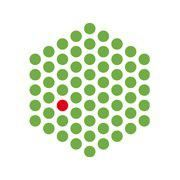Recorded webinar
Multiscale model of the different modes of invasion: a PhysiBoSS application
The tumour microenvironment encompasses many different cell types including cancer cells, stromal cells, immune cells, and the extracellular matrix (ECM), that interact and collectively influence cancer progression and treatment outcomes.Recently, computational mathematical models have been proved efficient in testing hypotheses and giving insights about tumour microenvironment functionalities. Among those, hybrid multiscale models combine different techniques that simulate both inter- and intra-cellular interactions.In this context, we present a 3D model of cancer cell invasion, aiming to study the different modes of cell migration through the extracellular matrix and to predict means to block it by considering spatial information, molecules’ diffusion and intracellular regulation.The model was constructed using PhysiBoSS, a multiscale framework, which combines agent-based modelling and continuous time Markov processes applied on Boolean network models.Our multiscale model successfully reproduces single and collective migration processes reported in published experiments on cell invasion. These experiments include various aspects such as the role of p63 expression in regulating MT1-MMP, the spatio-temporal activation of SRC triggering collective migration, and the influence of different collagen densities on invasion modes. In silico experiments can be performed to suggest potential targets capable of inhibiting highly invasive tumour phenotypes.About the speakerMarco Ruscone is a PhD student in the Computation Systems Biology of Cancer group at Institut Curie, Paris. He started his academic career in Turin, Italy, where he pursued his bachelor degree in Physics and master degree in Physics of Complex Systems for the Biology, at Università degli Studi di Torino.Currently, his work focuses on developing multiscale models of cancer using a mixed approach of agent-based modelling and simulation on Boolean networks.
Resource type: Recorded webinar
Scientific topics: Computational biology, Personalised medicine, Oncology
Activity log

 EMBL-EBI
EMBL-EBI
